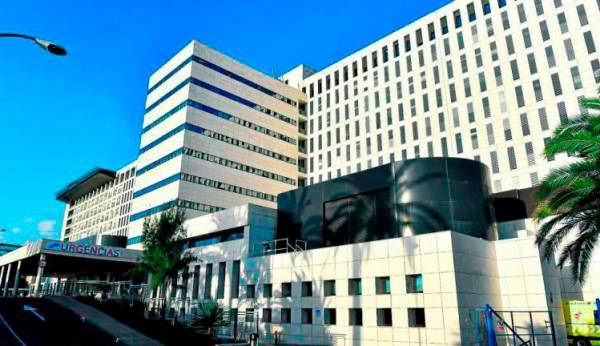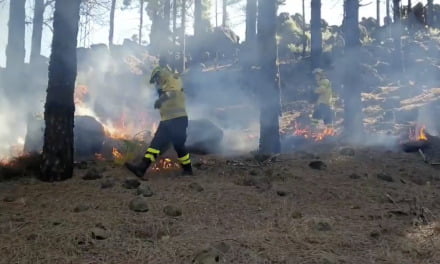The Canary Islands Government Ministry of Health recorded 202 new cases of coronavirus COVID-19 on Saturday. The total number of cases accumulated in the Canary Islands has now reached 48,943, with just 4,567 patients still being actively monitored. 78 are currently admitted to the ICU, and 316 others remain hospitalised. There has been one new death, a 66-year-old woman in Tenerife, who had been admitted to the hospital and was also suffering from previous pathologies.
For the latest Canary Islands data on Covid-19, updated daily, check our Canary Islands dashboard
- Tenerife have added 83 cases this Saturday to total 20,697 accumulated cases since the start of the pandemic, and now has 2,365 epidemiologically active cases
- Gran Canaria adds 86 cases and has an accumulated total of 20,366 with 1,879 currently active.
- Lanzarote (with Graciosa) adds 18 new cases to total 4,727 accumulated and 103 active;
- Fuerteventura has 10 more cases than they did on Friday, having cumulatively totalled 2,135 cases, with 197 active.
- La Palma adds four new cases to total 490 accumulated and 19 active;
- El Hierro have added no new cases, remaining at an accumulated 301, with one still active.
- La Gomera has no new cases either, having accumulated 226 with two still being actively monitored.
To date, a total of 990,699 PCR tests have been carried out on the Islands, of which 3,825 were done in the last 24 hours.
Faced with the latest data, and despite our significantly low numbers of infections throughout the last year, some are starting to point to The Canary Islands facing the beginning of what looks like a fourth wave, following almost a week of continued increases in cases, with patients being hospitalised for Covid-19 at a faster rate than at any other time during the pandemic. 394 new admissions throughout the Canary Islands, particularly Tenerife and Gran Canaria, and the Archipelago continues to increase its rate of newly detected cases, compared to the weeks previous. Although Saturday’s new case count was less than Friday’s, on the two capital islands there has been a significant increase compared to last week.
Gran Canaria’s 86 new cases brings the total number of cases detected this week to 736, 21% more than the previous week. This volume of weekly positives has not been seen on the island since the beginning of February. On Tenerife the 83 new cases, brought their total weekly positives to 711, 43% more than the week previous. The last time they saw similar number of cases accumulated over seven days was back on March 25.
However, this is the first time in the entire pandemic that both islands have faced an epidemic wave with significant healthcare pressure at the same time. During the first wave, despite the fears, there very little pressure on the health service due to Covid-19, but this increased exponentially over just a few weeks, reaching a maximum of 488 people admitted at the same time on March 30 2020.
During the second wave (which occurred between August and September, putting a sudden stop to summer tourism again), the increase in cases started with just 18 patients admitted.
The third (between December and January) saw many more hospitalisation with the average number of admitted patients having reached 350. The majority were on Tenerife. January was the deadliest month we’ve had so far, with more than a hundred deaths added to the total.
This time round the newly detected Covid-19 cases have already resulted in almost 400 hospitalised and and so now threatens to exceed the peak seen during the first wave.
The rest of the islands to the west have remained practically coronavirus free, though Lanzarote and Fuerteventura have this week added slightly more cases than in previous weeks.
Meanwhile, the Ministry of Health has administered 383,479 doses of the 457,120 vaccines received, managing to administer 16,054 vaccines in just one day. 117,530 people on the Canary Islands have been immunised, having already received both doses of the vaccine, representing 6.28% of the primary target population of 1,871,033 people. The number of people already immunised now exceeds the total number of accumulated cases over the last year by 68,587 people.
The AstraZeneca vaccine is being specifically focused on people between the ages of 60 and 69 years old and the Health Department say that they have not noticed any increase, among the Canarian population included in this age range, in people refusing to take the jab.
Latest data released this Sunday afternoon:
?Sanidad notifica 184 casos de #COVID19 en las últimas 24 horas.
?Hasta hoy se han realizado 992.847 PCR, de las que 2.148 se corresponden a ayer
➡️Más info:https://t.co/mKCqFePSxc pic.twitter.com/14BvvvEMYj
— Sanidad Gobcan (@SanidadGobCan) April 11, 2021














